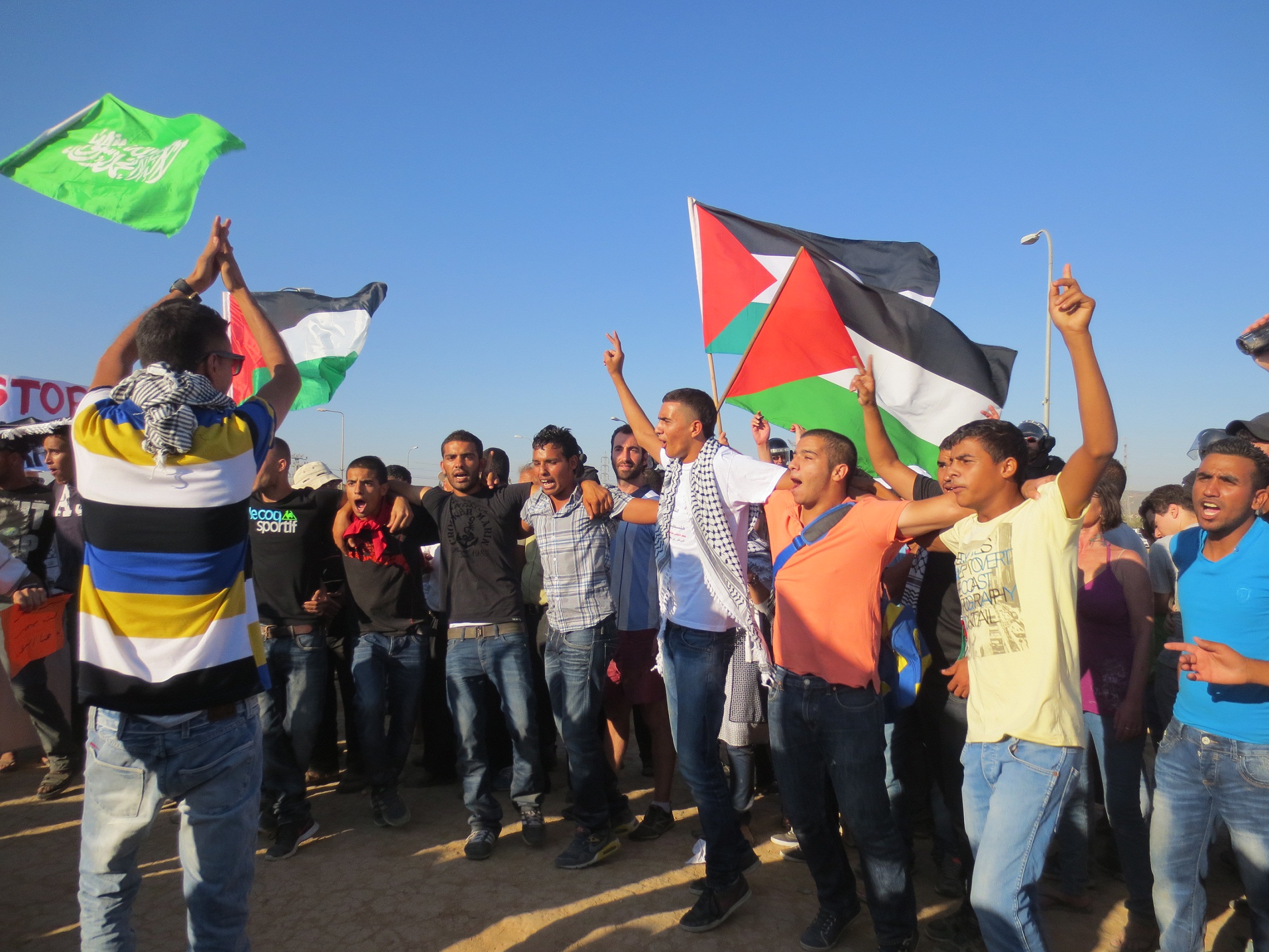Category: Reports
-
Updated: ‘Day of rage’ against Prawer Plan met with violent repression and over ten arrests
2nd August 2013 | International Solidarity Movement, Ramallah Team | Palestine Update 2nd August: The Palestinian activist arrested at the protest near Hizma checkpoint has been released after paying 3000NIS. All arrestees at the demonstration in Wadi Ara have also been released but will have to be under house arrest for three days. ******* On…
-
Bedouin in the West Bank: Settler attacks, denial of water
31st July 2013 | International Solidarity Movement, Nablus Team | Huwwara, Occupied Palestine In Huwwara, 9km south of Nablus there are two Bedouin families who have been living in tents with their animals since the start of June. They are usually camped near Hebron or in the Naqab desert, but for the summer they are…
-
Video – Israeli settlers torch Hebron family’s property for eighth time
29th July 2013 | International Solidarity Movement, Khalil Team | Hebron, Occupied Palestine On Sunday, July 28, Israeli settlers severely burned land belonging to Hani Abu Haikel and his family in Hebron. Occupation soldiers, though at first trying to help stop the fire, ended up blocking the road so that Palestinian firefighters were delayed in…

